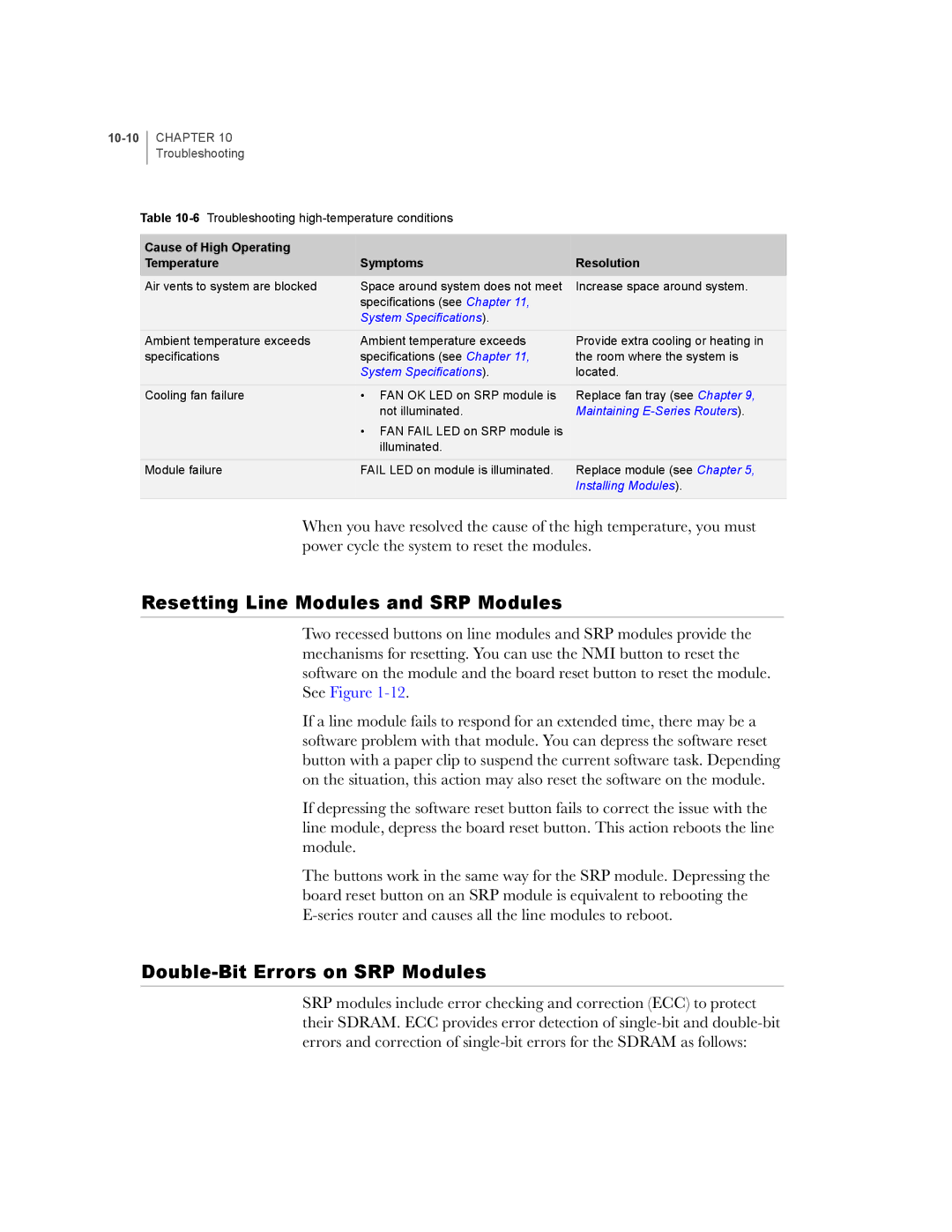
Table
Cause of High Operating |
|
|
Temperature | Symptoms | Resolution |
Air vents to system are blocked | Space around system does not meet | Increase space around system. |
| specifications (see Chapter 11, |
|
| System Specifications). |
|
Ambient temperature exceeds | Ambient temperature exceeds | Provide extra cooling or heating in |
specifications | specifications (see Chapter 11, | the room where the system is |
| System Specifications). | located. |
|
|
|
Cooling fan failure | • | FAN OK LED on SRP module is |
|
| not illuminated. |
| • | FAN FAIL LED on SRP module is |
|
| illuminated. |
Replace fan tray (see Chapter 9, Maintaining
Module failure | FAIL LED on module is illuminated. | Replace module (see Chapter 5, |
|
| Installing Modules). |
|
|
|
When you have resolved the cause of the high temperature, you must power cycle the system to reset the modules.
Resetting Line Modules and SRP Modules
Two recessed buttons on line modules and SRP modules provide the mechanisms for resetting. You can use the NMI button to reset the software on the module and the board reset button to reset the module. See Figure
If a line module fails to respond for an extended time, there may be a software problem with that module. You can depress the software reset button with a paper clip to suspend the current software task. Depending on the situation, this action may also reset the software on the module.
If depressing the software reset button fails to correct the issue with the line module, depress the board reset button. This action reboots the line module.
The buttons work in the same way for the SRP module. Depressing the board reset button on an SRP module is equivalent to rebooting the
Double-Bit Errors on SRP Modules
SRP modules include error checking and correction (ECC) to protect their SDRAM. ECC provides error detection of
